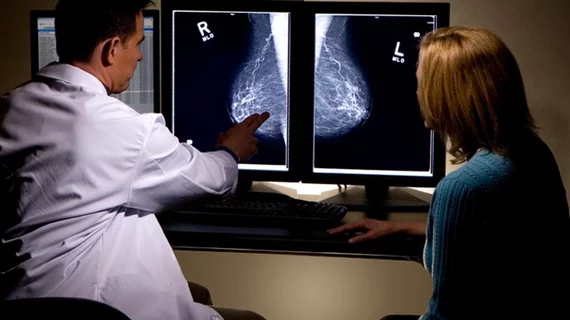DBT screenings have higher cancer-detection rates, fewer false positives than 2D mammography
False positive rates are lower and cancer-detection rates higher when using digital breast tomosynthesis (DBT) for breast cancer detection and diagnosis, clinicians found in a study slated for presentation at the American Roentgen Ray Society’s annual meeting this spring.
Rates of false positive breast cancer screening exams fell after complete integration of DBT into oncology practices, according to an ARRS release, which could translate to higher quality testing, lower costs and fewer unnecessary biopsies. But while DBT is linked to lower false positive rates in screenings, doctors are unsure of its utility in a diagnostic setting.
The study, led by Charmi Vijapura, MD, of Massachusetts General Hospital, compared consecutive diagnostic mammograms conducted between August 2008 and July 2015, the release stated. The trial encompassed both earlier-stage 2D mammography exams and, in later years, DBT, as well.
Keeping in mind that mammograms were considered false positives if there was no known tissue diagnosis of breast cancer within one year of recommendation for tissue diagnosis or surgical consultation, Vijapura and her colleagues found the cancer-detection rate was significantly greater in the DBT group, while the false positive rate was significantly lower.
Recent research published in Radiology has also identified DBT as an increasingly effective screening method for detecting histologically favorable tumors.
Vijapura’s trial is just one of many studies set to be presented at this year’s ARRS meeting in Washington, DC. The conference is scheduled for April 22-27.

